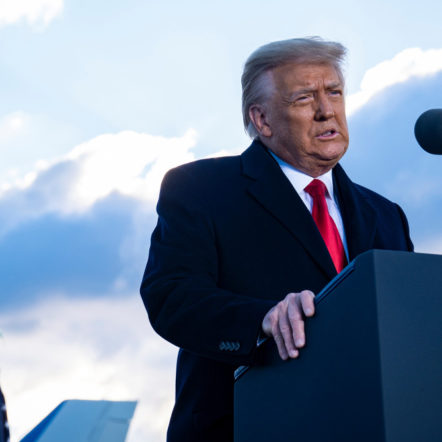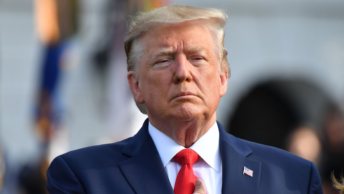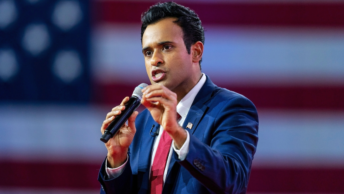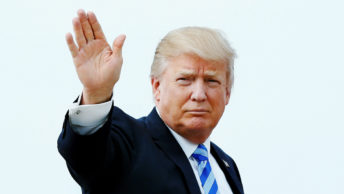Why does one half the country deplore Donald Trump while the other half esteems him? As one who began on one side of the division and ended on the other, and published my views on each, my understanding is more nuanced than that of people who have never changed sides. The following quotes from my writings reveal how my view evolved. (Click on the dates for more details about each.)
July 22, 2015 “Despite [his] admirable qualities such as the ability to solve problems and make decisions, and the courage to speak his mind forthrightly, I believe [Trump] lacks two more important attributes of a leader—the habit of respecting those he disagrees with and the humility to acknowledge his mistakes and apologize when appropriate.”
March 9, 2016 “One of the few characteristics that exceeds Trump’s diminishing of others is his self-congratulation. . . The extravagance of both Trump’s denigration of others and his boasting about himself may call to mind the vulgar ravings of “professional” wrestlers. There is good reason for this. Trump had a long association with Vince McMahon and Wrestlemania.”
June 23, 2016 [Three negative characteristics of Trump’s speaking style] are the following: “Wanderitis—the seeming inability to control the direction of his speaking, which suggests a more serious inability to manage his thoughts. . . Disciplined thinkers focus on one at a time while holding the others to the side. Trump seems unable to exercise that discipline. . . .Vocabulary deficiency. I am not referring to his passive vocabulary, words that he understands when others use them but seldom uses himself. (That vocabulary is no doubt large.) I mean, instead, his active vocabulary, the words he actually uses. This deficiency is manifested in his overreliance on a small number of words, notably amazing, fantastic, incredible, unbelievable, tremendous, enormous, beautiful, overrated, disgrace, catastrophic, winning, losers (andtotal losers).. . . [This] deficiency is also noticable in his frequent repetition of sentences. . . . [Both deficiencies] increase the chance of verbal imprecision . . . . Overgeneralization. For example, his remarks about Mexicans seem to be about all Mexicans. The same is true of his remarks about immigrants, Muslims, and women. . . . This explains why when Trump makes a valid, even insightful, point, he often overstates it.”
These early assessments of Trump reflected my several decades teaching college students to think clearly and write and speak coherently and gracefully. Simply said, I found Trump’s style usually exasperating and sometimes offensive. However, after he won the nomination and faced Hillary Clinton in the presidential campaign, I decided that, his flaws not withstanding, he was the better candidate, and so with considerably more hope than confidence, I voted for him.
Then Trump was elected, and from the beginning of his presidency I was struck by the stark contrast between his annoying speaking style and his increasingly impressive presidential performance. If I had to grade him in those early months, I would have split the grade between style and substance: D- for the former, A- for the latter. As months passed into years and his accomplishments multiplied, I would have raised the style grade to D+/C- (for his use of a teleprompter) and the performance grade to A+. What impressed me most was that he kept his promises. In time, I came to regard him not only as a good president, but in some respects as a great one.
Judging by the 2020 election results, roughly half of the country agreed with me and half disagreed. Why the difference? I believe it is not because half the country loved Trump and half hated him from the beginning, but instead because half gave Trump a chance to prove himself worthy of approval, and the other half did not.
Furthermore, I believe one reason those who refused to give Trump a chance did so because they were influenced by the bias of progressive journalists, politicians, and big-tech executives. (See “American Culture’s Unholy Trinity.”) The other reason was their desire, in some cases determination, to nurture their initial impression of Trump. That desire was not only irrational but immoral. Let me explain why:
Change is a central feature of the universe. Earth continues to move around the sun. Rivers flow, each drop of the water constantly changing its position. A butterfly flaps its wings and the weather is altered on the other side of the world. One season gives way to the next. Civilizations rise and fall. People are born, age, then die.
Change is also a central feature within each human life. Good people can become bad and bad people, good. Thus a notable sinner becomes a great saint (think Augustine), and a vain troubadour puts vanity aside and becomes Christ-like (think Francis of Assisi). Less dramatic changes are even more common—for example, people become less self-centered, arrogant, or nasty and more respectful of others, kind, charitable, and so on. The very concepts of education and learning are based upon belief that positive change is possible.
Christians believe the possibility of change also has a spiritual dimension. The beatitudes are a blueprint for a life more acceptable to God, and the acceptance of that blueprint leads to changes in outlook and behavior; for example, accepting Christ as Savior, repenting one’s sins, and amending one’s life. Christians believe, further, that every person is created in the image and likeness of God, that God never gives up on anyone, and that His grace and encouragement are unceasing until the moment of death.
From the beginning, Christians have believed that to regard any fellow human being (including Donald Trump) as excluded from God’s grace, and therefore incapable of spiritual change, is morally wrong. Scripture commands us to regard others as we regard ourselves, as imperfect human beings, with faults and virtues. Christians also believe that the Holy Spirit gives the grace to grow morally and spiritually to all who seek it. Furthermore, they accept Jesus’ assurance that “not everyone who says ‘Lord, Lord’ shall enter the kingdom of heaven” but only “those who do the will of [the] Father,” and therefore that the measure of a person is not in promises but in deeds.
Over 75 million people evidently denied Donald Trump the benefit of the doubt about his intentions and refused to take his measure by the quality of his deeds. They evidently did not even consider his promises, but focused instead on his lack of “gentlemanliness” in expressing them. That large number of people included a much greater percentage of Catholics (roughly half) than of Mormons and Evangelicals (about 25%).
I believe one important reason for so many Catholics ignoring Trump’s deeds was the unfortunate example set by many of their shepherds; that is, their bishops. In contrast, Mormon and Evangelical leaders seem to have been more responsive to Christ’s message about deeds outweighing words.
Throughout this essay I have spoken of the refusal of half the voters in the country to overcome their hatred and acknowledge Trump’s achievements for the country. Now I will call that refusal by a more biblical term—SIN! That sin was largely responsible for the election of Joe Biden. And now less than two weeks after Biden’s inauguration, the first “fruits” of that sin are already clear in his spate of executive orders, which display with great clarity how he differs from his predecessor.
Trump was a great DOER: he built a wall when a wall was desperately needed, eliminated government regulations, made the U.S. energy-independent, decreased taxes, brought jobs back from overseas, reduced unemployment, increased the incomes of Blacks, Hispanics, and Asians, nominated constitutionalist judges, advanced the cause of peace in the Middle East, and restricted late-term abortions. Biden has so far been a great UN-DOER, proudly signing orders to reverse a number of Trump’s accomplishments and promising to reverse others.
The pressing question is what Americans can do from the present moment forward to end the division between those who supported Trump and those who opposed him? First, they can acknowledge that neither the man nor his achievements were judged fairly. Secondly, they can re-examine his achievements objectively and endorse those that are beneficial for the country. Finally, they can share their endorsement with elected officials and urge that they support it.
These actions will be difficult, especially for those who refused to give Trump a chance to prove himself by his actions and who still harbor that attitude and continue to deny his achievements. This difficulty is likely to be greatest for those religious prelates who irresponsibly embraced the false narratives of the media and thus failed to provide the wise leadership they were anointed to provide.
Difficulties aside, however, change is still possible. God wants us to seek the truth about the world around us and about our own thoughts and actions. And Scripture promises not only forgiveness for our sins, but also the grace to grow in wisdom and goodness. All we need to do is admit our mistakes and open our minds and hearts to that grace. If we have the courage and humility to do that, the division now plaguing our country is sure to end.
Copyright © 2021 by Vincent Ryan Ruggiero. All rights reserved








